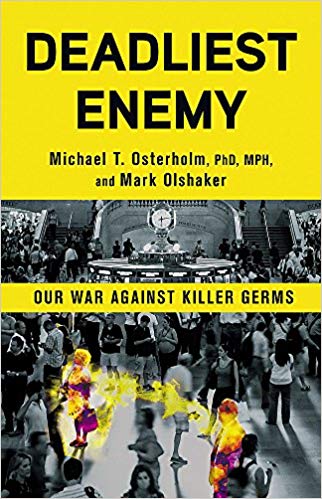Bob Woodward’s new book, Rage, is an unprecedented and intimate tour de force of new reporting on the Trump presidency facing a global pandemic, economic disaster and racial unrest.


Woodward, the #1 international bestselling author of Fear: Trump in the White House, has uncovered the precise moment the president was warned that the Covid-19 epidemic would be the biggest national security threat to his presidency. In dramatic detail, Woodward takes readers into the Oval Office as Trump’s head pops up when he is told in January 2020 that the pandemic could reach the scale of the 1918 Spanish Flu that killed 675,000 Americans.
In 17 on-the-record interviews with Woodward over seven volatile months—an utterly vivid window into Trump’s mind—the president provides a self-portrait that is part denial and part combative interchange mixed with surprising moments of doubt as he glimpses the perils in the presidency and what he calls the “dynamite behind every door.”
At key decision points, Rage shows how Trump’s responses to the crises of 2020 were rooted in the instincts, habits and style he developed during his first three years as president.
Revisiting the earliest days of the Trump presidency, Rage reveals how Secretary of Defense James Mattis, Secretary of State Rex Tillerson and Director of National Intelligence Dan Coats struggled to keep the country safe as the president dismantled any semblance of collegial national security decision making.
Rage draws from hundreds of hours of interviews with firsthand witnesses as well as participants’ notes, emails, diaries, calendars and confidential documents.
Woodward obtained 25 never-seen personal letters exchanged between Trump and North Korean leader Kim Jong Un, who describes the bond between the two leaders as out of a “fantasy film.”
Trump insists to Woodward he will triumph over Covid-19 and the economic calamity. “Don’t worry about it, Bob. Okay?” Trump told the author in July. “Don’t worry about it. We’ll get to do another book. You’ll find I was right.”
Review
“Woodward has established himself as the best reporter of our time. He may be the best reporter of all time.” —Bob Schieffer, CBS News (2004)
In listing the all-time 100 best nonfiction books, Time magazine called All the President’s Men, the 1974 book by Carl Bernstein and Bob Woodward, “Perhaps the most influential piece of journalism in history.”
“He has an extraordinary ability to get otherwise responsible adults to spill [their] guts to him . . . his ability to get people to talk about stuff they shouldn’t be talking about is just extraordinary and may be unique.” —Robert Gates, former director of the CIA and Secretary of Defense (2014)
“[Fear] is a remarkable feat of reporting. . . . There’s nothing comparable in American journalism, except maybe Woodward’s The Final Days (1976), co-written with Carl Bernstein, about the downfall of Richard Nixon.” —George Packer, The New Yorker (2018)
About the Author
Bob Woodward is an associate editor at The Washington Post where he has worked for 49 years and reported on every American president from Nixon to Trump. He has shared in two Pulitzer Prizes, first for the Post’s coverage of the Watergate scandal with Carl Bernstein, and second 20 years later as the lead Post reporter for coverage of the 9/11 terrorist attacks.
Woodward recalled how much of the most important Post reporting on Watergate was published in September and October 1972. Nixon promptly went out and got re-elected, claiming victory in 49 of the 50 states.
As for how America will fare on and after Nov. 3, Woodward knows it will be less clear-cut.
Having allowed Trump to defame and disqualify himself, Woodward concludes that he is the wrong man for the job of president; I’d add that someone so thoughtless, so unfeeling and so orange-tinted hardly qualifies for membership of the human race. And come to think of it, my opening premise is an insult to the brave, fond, ever-faithful canine species.




You must be logged in to post a comment.